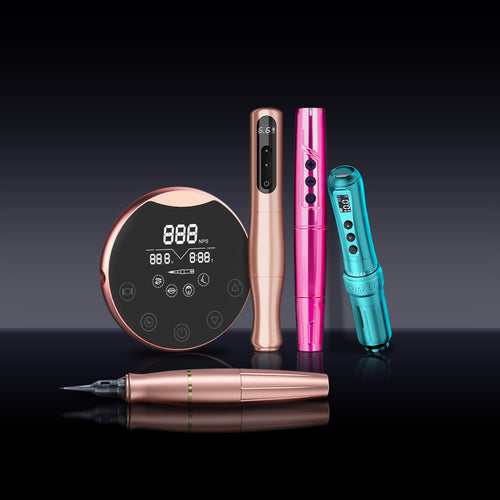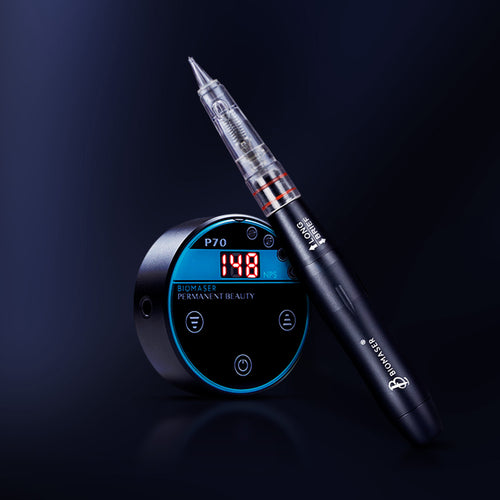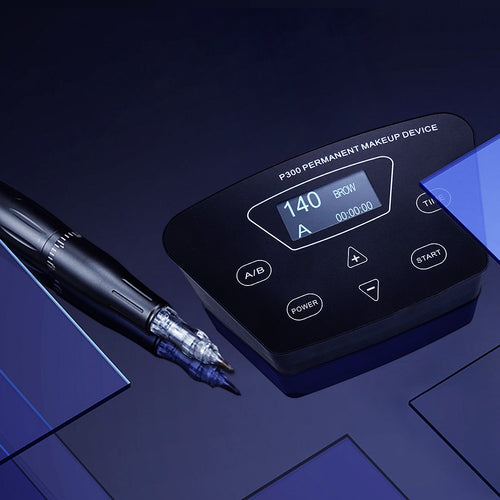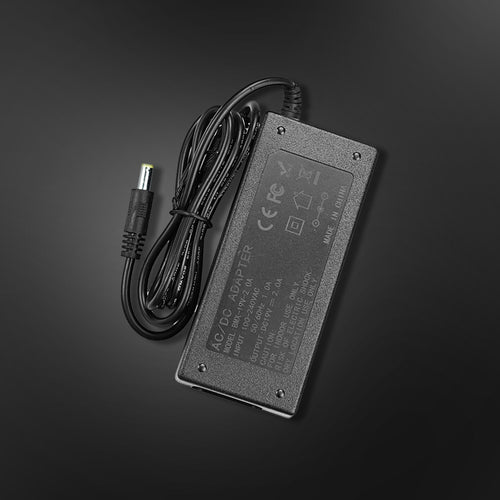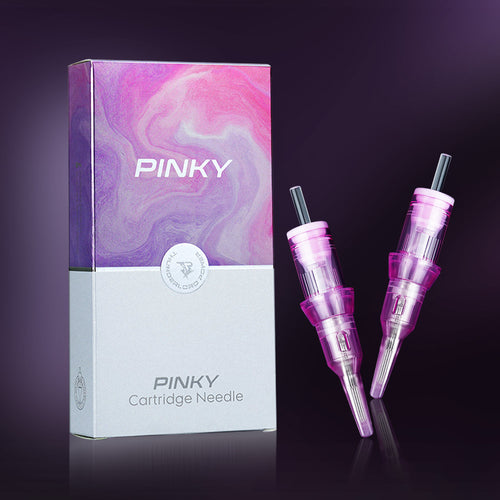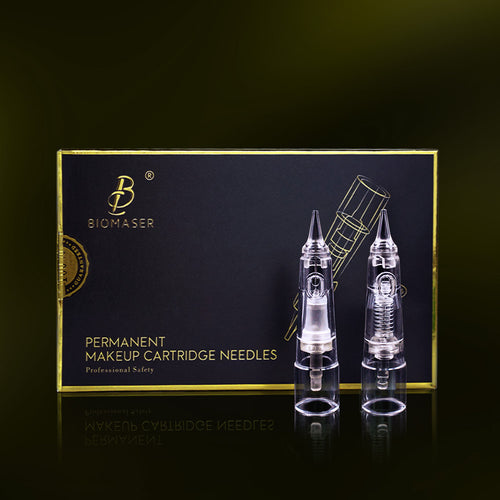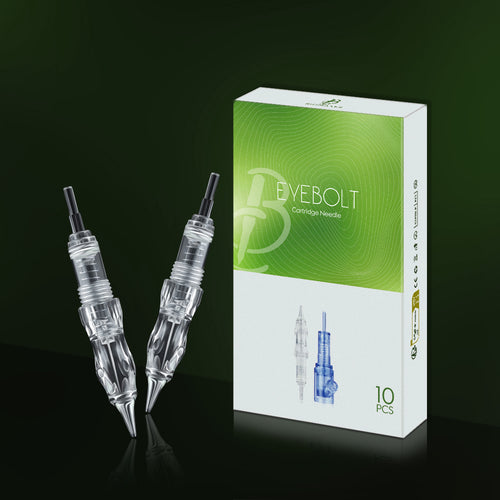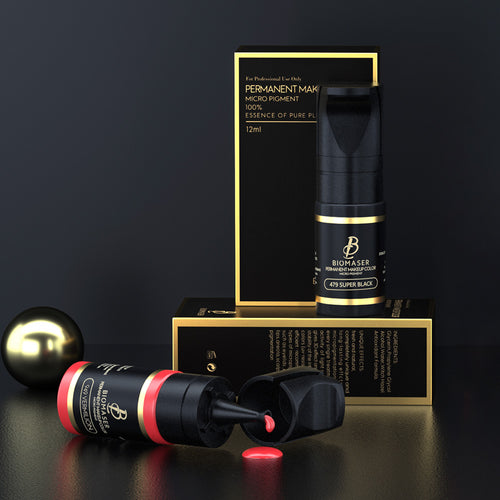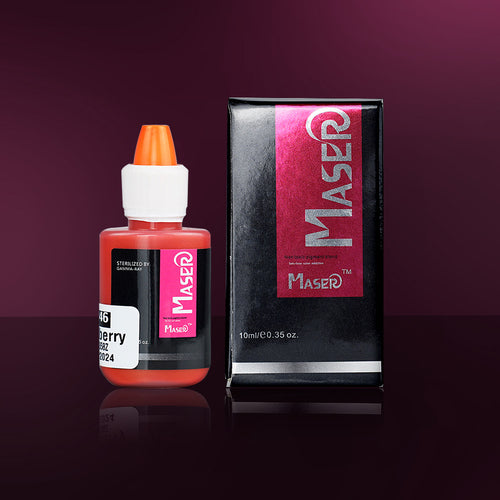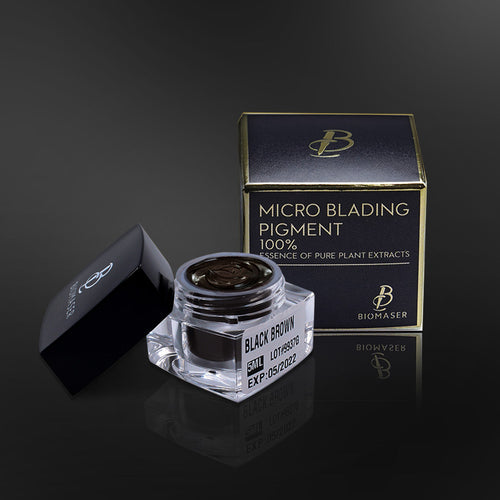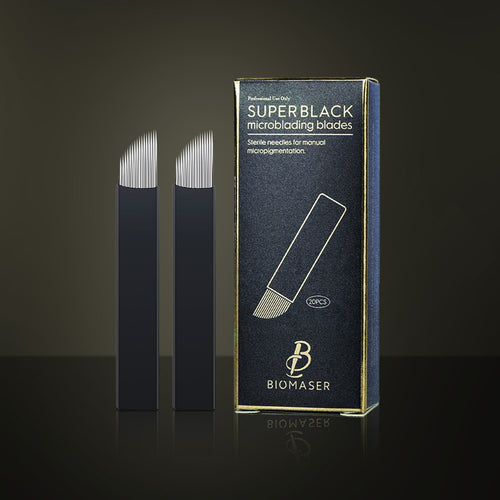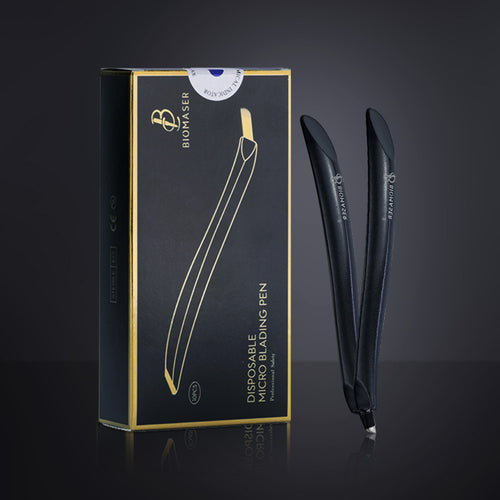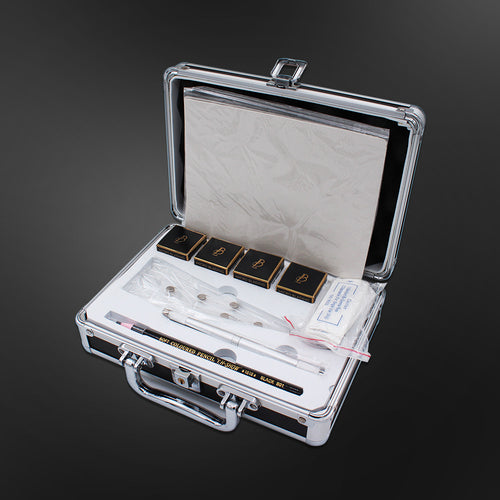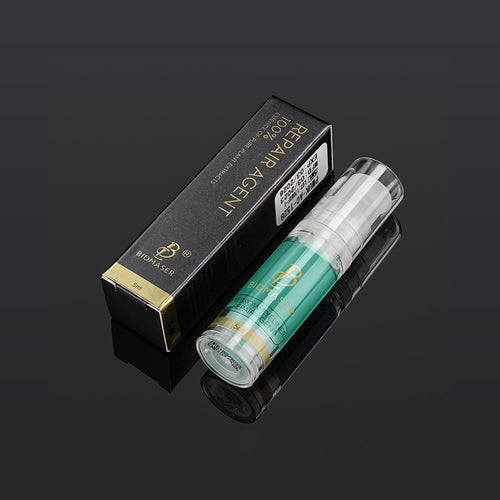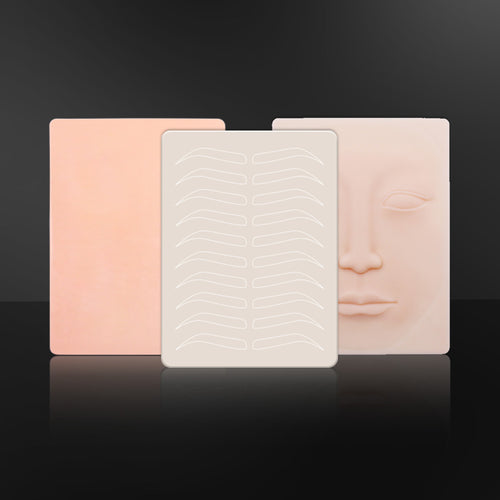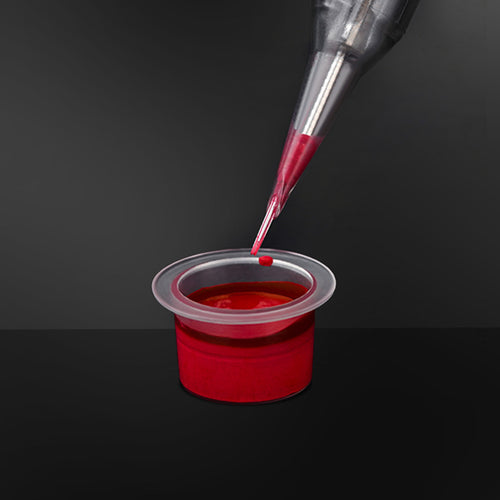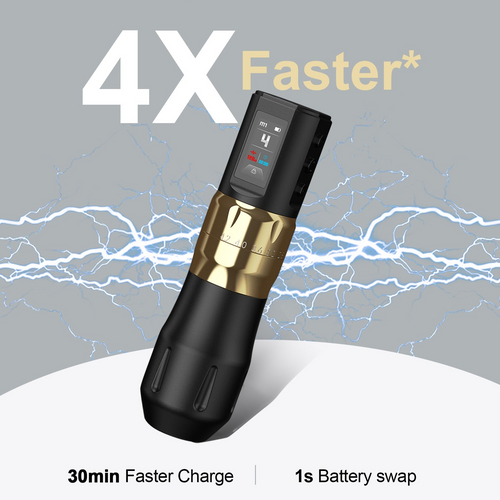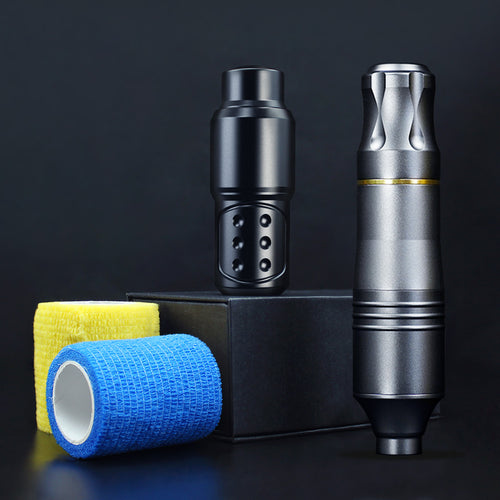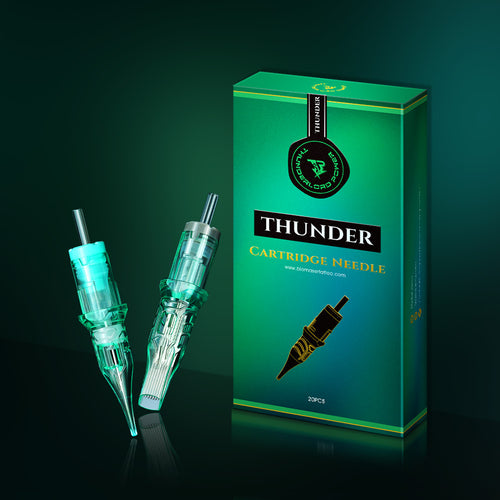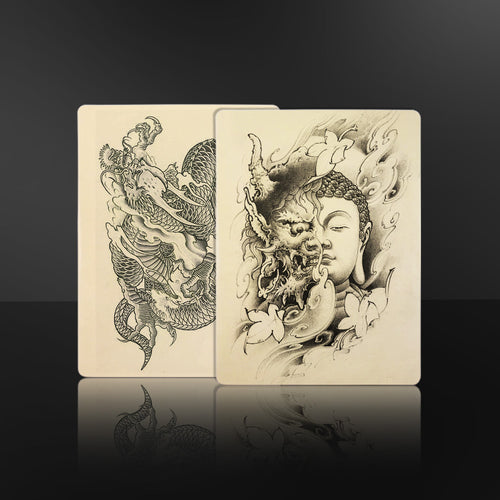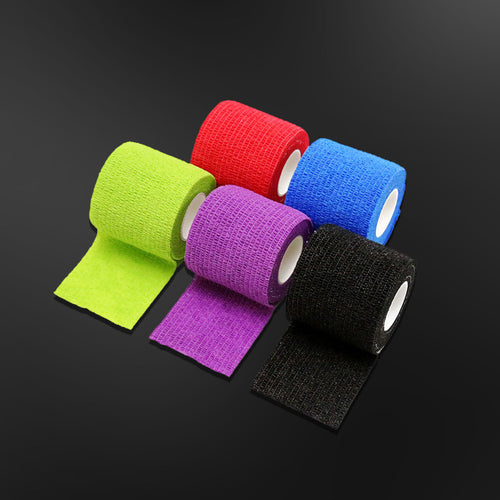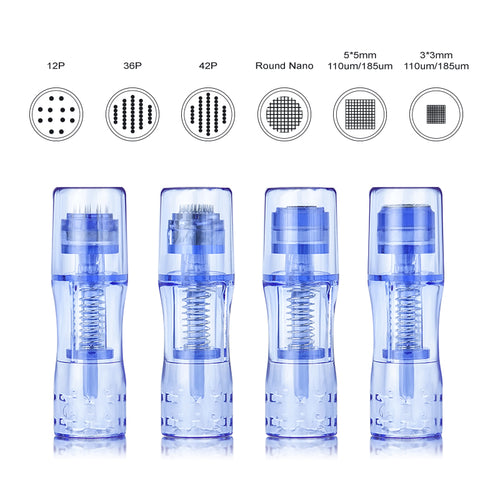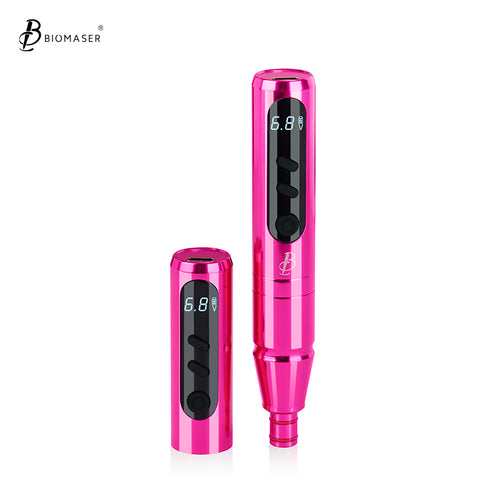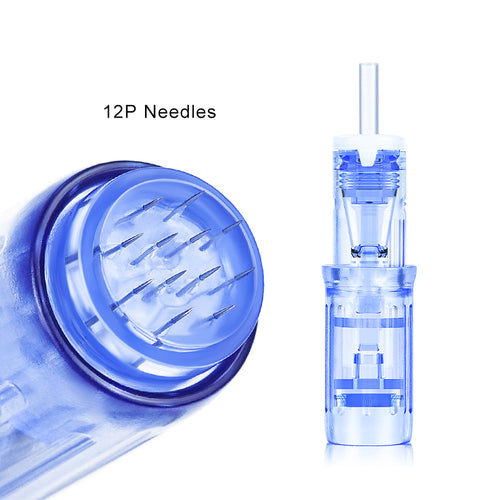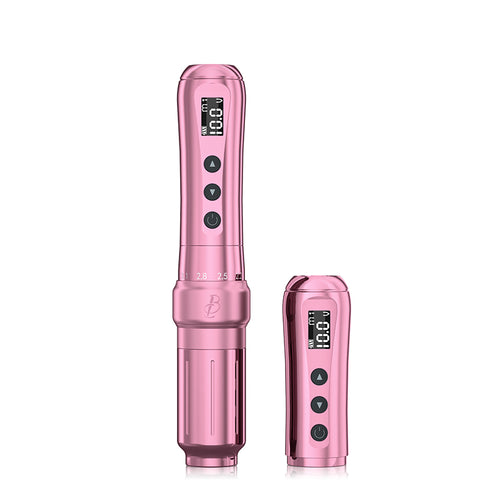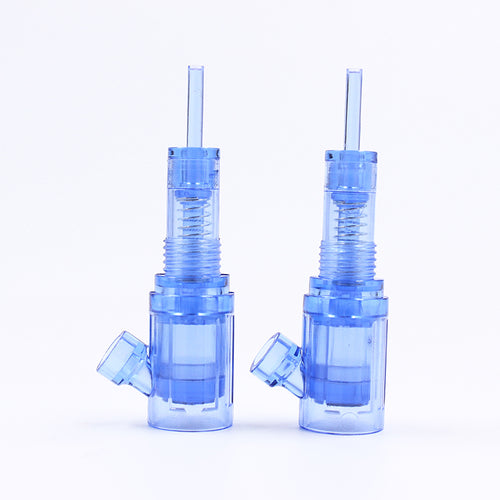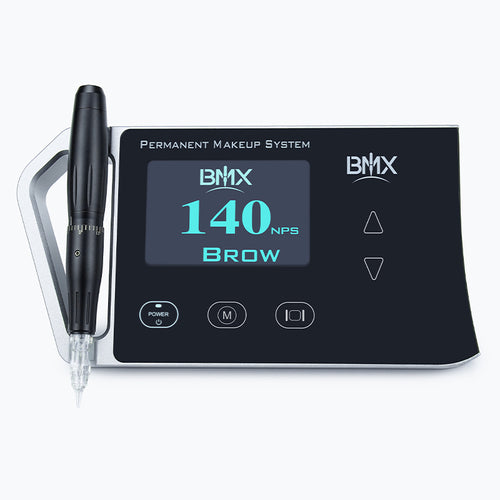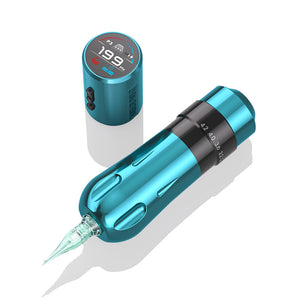Which Skin Types Are Not Ideal for Tattoos?

Ever dreamed of getting that perfect tattoo? But, there's something you might want to think about first: your skin. Your skin type can make or break how your tattoo turns out, so it's more important than ever to know if your skin is tattoo-friendly. Now, let's talk about why some skin types might throw a wrench in your tattoo plans.
Knowing Different Skin Types Before Getting Inked
Like artists need to consider the texture and quality of their painting surface, tattoo artists need to work with your unique skin characteristics. Here are the main skin types:
- Normal Skin is great for tattoos because it has the right amount of wetness and good healing properties. If you have normal skin, your tattoo will heal in an expected way and stay vibrant over time.
- Oily Skin is characterized by enlarged pores and a shiny appearance. Clients usually need 15–20% more touch-ups than people with normal skin
- Dry Skin often feels tight and may show flaking. This skin type can be more challenging during the healing process, with a 30% higher risk of patchy healing if not properly moisturized.
- Combination Skin has different features in different parts of the body, so tattoo artists have to adjust their techniques accordingly.
- Sensitive Skin is easily affected by outside factors and may need extra care during both the tattooing and healing processes.
Skin Types That Are More Challenging for Tattoo Artists
After learning about different skin types, now let's explore which certain skin types require extra attention and care during the tattooing process.
Oily Skin: The Slippery Canvas
For oily skin, the excess sebum production can:
- Make it harder for tattoo ink to settle properly in the skin
- Cause colors to appear less vibrant over time
- Increase the risk of ink spreading under the skin
Dry Skin: The Thirsty Surface
Dry skin can be particularly tricky for tattooing because:
- It tends to be more sensitive during the tattooing process
- The skin may not retain ink as effectively
- Healing can be more complicated due to flaking and scaling
Sensitive Skin: The Reactive Canvas
People with sensitive skin face several challenges:
- Higher risk of allergic reactions to inks (affecting about 2-3% of people with sensitive skin)
- Extended healing time (typically 20-30% longer than normal skin)
- Increased likelihood of developing complications during healing
Aging or Thinning Skin: The Delicate Surface
As we age, our skin becomes less ideal for tattooing due to:
- Reduced elasticity leading to potential distortion
- Thinner skin increasing the risk of blowouts
- Slower healing time (up to 50% longer in individuals over 60)
How Do Common Skin Conditions Impact Your Tattoo Experience?
Having a skin disease can also affect your tattoo, so you should think about it carefully and talk to both doctors and experienced tattoo artists.
Eczema
Got eczema? Your skin might need some extra TLC before getting inked. Think of eczema like having super-sensitive skin that gets dry and itchy easily. That itchiness could make you want to scratch your new tattoo, which is definitely a no-no during healing. Plus, since eczema makes your skin more sensitive, you might need a bit more time to heal than others.
Psoriasis
Psoriasis is like having overachieving skin cells - they grow too fast and create thick, scaly patches. Getting a tattoo might trigger new psoriasis patches where you got inked. The super-fast skin cell turnover can also make your tattoo look uneven or fade faster than usual.
Allergic Reactions
Sometimes your skin might decide it's not suitable for certain tattoo ink - especially red and yellow ones. This can happen right away or even years later. Your skin might get itchy, red, or puffy where the ink is. If you've got sensitive skin or allergies, ask your artist about hypoallergenic inks and maybe start with a tiny test spot first.
Keloid Scarring
If you're prone to keloids (those thick, raised scars), heads up! They're most likely to pop up on your chest or shoulders. But don't panic - work with your artist to pick a spot where you're less likely to develop keloids, and maybe start small to see how your skin reacts.
How to Prepare Your Challenging Skin Type for a Tattoo
Setting yourself up for success starts well before you sit in the tattoo chair. Here's a comprehensive guide to preparing your skin, choosing the right artist, and ensuring proper aftercare.
Pre-Tattoo Preparation
Two Weeks Before:
- Begin a consistent skincare routine
- Monitor skin reactions
- Stay properly hydrated (8-10 glasses of water daily)
One Week Before:
- Avoid excessive sun exposure
- Stop using any harsh skincare products
- Begin documenting skin condition with photos
Finding the Right Artist for Your Skin Type
Look for artists who:
- Have experience with your specific skin type
- Can show examples of healed work on similar skin
- Are willing to discuss modifications based on your skin's needs
Custom Aftercare Based on Your Skin Type
Different skin types require different approaches to aftercare:
| Skin Type | Special Considerations | Recommended Products |
| Oily | More frequent cleaning | Non-comedogenic moisturizers |
| Dry | Extra moisturizing | Heavy-duty healing ointments |
| Sensitive | Gentle products only | Hypoallergenic options |
| Aging | Extended healing time | Collagen-supporting products |
Being Well-Prepared to Get Tattooed with Challenging Skin
Some skin types may be more difficult to work with than others, but getting ready, picking the right artist, and following the aftercare guidelines can all help you get the best results. Your skin type doesn't have to stand between you and your dream tattoo - it just might require some extra preparation and care.
